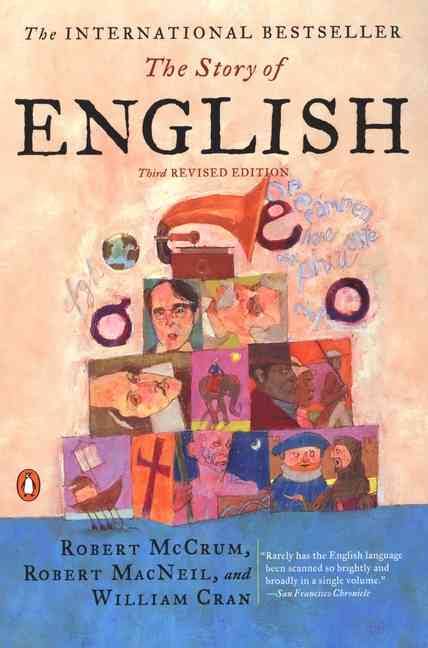
People that make their living from language, including people that do voiceovers, seem to fall equally on either side of the fence when it comes to what constitutes “good English.” There are those that say we must uphold the standards of the language, both written and spoken. And then there are those that say it’s important to write and speak the way the “average Joe…or Jolene” speaks. I just don’t understand how people can get so polarized over this issue of changing English.
Voiceovers Over Time
Sure, every language has and needs standards of grammar, meaning, and pronunciation, but it’s pretty apparent to me that language changes over time. I’m certainly glad that English has evolved. Otherwise, we’d be voicing McDonald’s ads, corporate narrations, and on hold messages in Old English, which pre-dates the Norman invasion of Britain in 1066. It sounded more German than English, with some Latin thrown in. How’s this for a tag? “McDonald’s: Forsooth. I am loving thou!” Or something like that. Yikes!
Clear pronunciation of today’s American English by voice talent is pretty much a good thing, but, again, the language here in the States, as in other parts of the world where English is spoken, is changing. This linguistic evolution has been reflected in advertising, moving from the “pear-shaped” tones of 1930s radio announcers to the “real person” that clients and advertising agencies are looking for today. People are savvy to advertising now. If they have to put up with ads, then they want to be spoken to as people and not as the marketing construct known as “the consumer.”
What’s Up?
In the last few decades, there’s been talk in the American media and in academia of the rise, pardon the pun, of “upspeak” in various parts of the US, especially among females . Upspeak is a pattern of speech that is dominated by a rising inflection of the last syllable of the last word in a sentence, making almost every sentence sound like a question or an unfinished thought. It’s most commonly associated with the “Valley Girls” of southern California. The world first took notice of an upspoken dialect when the Beatles and their hometown of Liverpool, England became famous. Their Liverpudlian dialect is just one of over 50 British English dialects. Of course, linguists accept the dialect of Liverpool as legitimate, though certain classes in Britain might not respect it. American upspeak, frankly, can be quite annoying, because it’s punctuated by so many “likes,” “you knows,” “fer sures,” and “OKs.”
Look to the Stars for Our Language
Star Trek always comes in handy during a debate about the supposed declining standards of American English. Star Trek is set several centuries in the future. Thinking back to what English sounded like several centuries in the past, how could it be that the Star Trek characters we watch on screen sound exactly like, well, people you might find sitting in a Starbucks in LA, sipping a four dollar cup of mediocre coffee, gabbing about whatever people who spend too much for coffee gab about? Let’s face it. English won’t be the same language 500 years from now as it is now. Talking with Captain Kirk all those centuries from now would be like talking to, say, Geoffrey Chaucer back in the 14th century. Can you say, “Say what?”
Standards in voiceover are important, but we need to recognize that every language changes over time and that goes for America’s changing English, as well. Will it be for the better? No one knows, of course. One thing is for sure; a few hundred years from now American English—assuming America is still in existence—will sound quite different.
The Voice of Change
I read a comment by a fellow voice talent in which he was disappointed to hear a number of voiceover pros saying “een” instead of “ing” at the ends of words. For example, “call-een” instead of “calling,” or “fall-een” instead of “falling.” Oddly, if the “ing” is in the middle of a word or in a monsyllabic word, e.g., “ring” then these talents say “ing.” He’s quite baffled by it. It baffles me too, but it doesn’t surprise me. I doubt this “een” for “ing” thing will become a de facto standard. It’s just another way the spoken language is evolving.
As with American upspeak, I’d be happy to see “een/ing” go away and certainly not spread. But that ain’t gonna hold back the tide of linguistic change. Two hundred years from now you might hear a producer complaining about talent saying “ine” instead of “een,” or using downspeak instead of upspeak!
Concern over pronunciation isn’t wholly a human affair. Synthetic voices powered by artificial intelligence–AI–are here, but they do make pronunciation mistakes. So, at the time of the writing of this sentence, humans still need to listen back to an AI voice-over to make sure the computer got all the words right. As time goes by and the algorithms continue to evolve and improve, pronunciation mistakes should decline.
Read All About It!
If you’re interested in where English came from and where it’s going, check out The Story of English, written by Robert MacNeil, the late co-anchor of the Nightly News Hour on PBS, and two other authors. The Story of English, hosted by Mr. MacNeil, aired as a mini-series in 1986. Today you can see it on YouTube. Great show, great book. Written in, well, plain English. Not stuffy and academic.
And one last thought. If we voice-over types are bothered by this changing English stuff, imagine what high school English teachers must be going through!
0169 Peter Drew, 2021
Next article: Directing Voiceovers: Don’t Be. Do.
